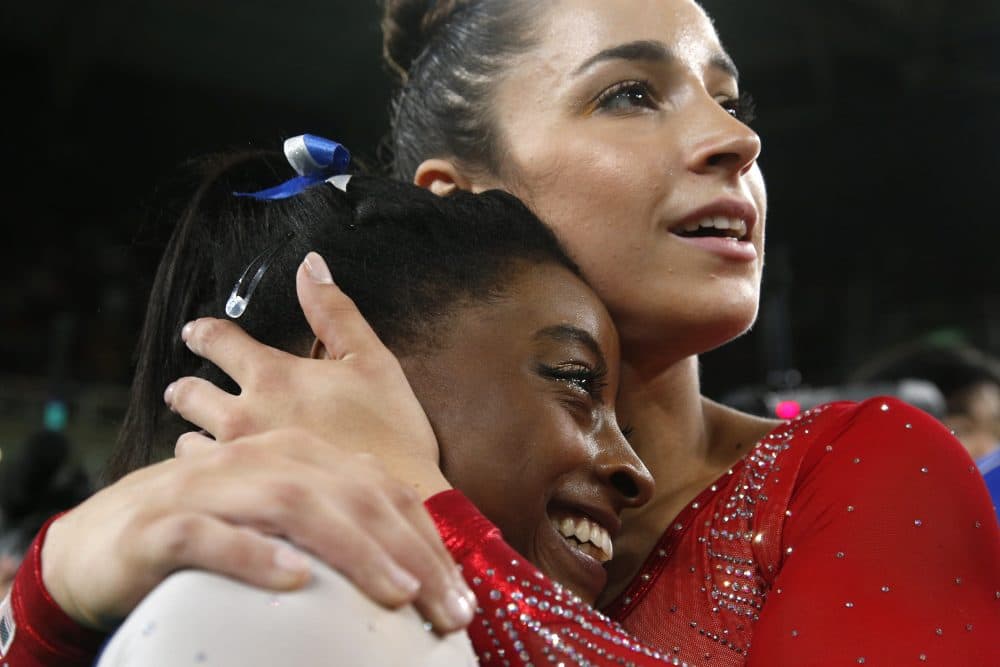Advertisement
What Olympians, From Millennials To Boomers, Can Teach Us About The Workplace

For two weeks this summer, we have been transfixed by stories of perseverance and an incredible display of prowess as the best athletes in the world compete with one another. We also watch human foibles play out under the most stressful of conditions.
Commentators focus on rivalries, family backgrounds, past tragedies, prior Olympic glory, stunning defeats and struggles for redemption. Even as we are mesmerized by the awesome display of human strength and focus, we are also captivated by the signs that these masters of their sport may really be just like us.
After all, if Olympic athletes can rise above troubled childhoods, potentially debilitating illnesses, poverty and violence to compete at the highest level of sports, then can’t we, too, move past our own problems? And if Olympians can stay hyper-focused for years to achieve athletic dreams, can we not similarly reach our goals at work? We watch for inspiration as much as with admiration.
If Olympic athletes can rise above ... then can’t we, too, move past our own problems?
Rio’s Olympians range in age from a 13-year-old swimmer from Nepal to a 62-year-old equestrian from New Zealand. And just like in the workplace, the generational focus tends to be on the older and younger participants, leaving those in the middle to build their athletic careers.
There are many lessons to be learned from the Olympics that can be applied to our jobs. In particular, the Olympics have much to teach us about the multi-generational workforce, a topic of great focus in workplaces everywhere. Millennials are closing in on being the dominant demographic, yet Baby Boomers continue to retire at a far slower pace than was predicted years ago. In the meantime, the smaller population of Gen Xers wonder where they fit in between these two behemoth generations.
Here are three lessons we can learn from the Olympics that can help us strengthen our multi-generational workplaces:
1. Every age has its strengths and weaknesses, and none should be stereotyped. There is a reason why the average age of shooters and equestrians is significantly higher than the average age of gymnasts. The former two depend more upon mental strength as a primary key to success, where the latter demands agility. Mental strength can be developed and toughened through the decades, while agility may be more predominant in youth. But before making any assumptions about what a person can or cannot accomplish at a given age, note that the oldest gymnast is 41, and the youngest equestrian is 18.
2. Never underestimate the tug of family on career decisions at all stages of life. Santiago Lange is an Argentine sailor who was 25 when he competed in Seoul in 1988. He won a gold medal in Atlanta, competed in Sydney, won a bronze in Athens and again in Beijing, and then thought he was done with his Olympic career. It was the sacrifice of family time, however, that brought him back for a sixth Olympics at the age of 54, lured by the chance to compete in the same Olympics with his two sons from whom he had been away so frequently in the past. (In the results to date, Santiago has earned another gold; his sons' event is not yet completed.)
It was the sacrifice of family time that brought [Santiago Lange] back for a sixth Olympics at the age of 54 ...
3. Competition and cooperation can exist together and encourage mutual excellence. Aly Raisman, a 22 year-old-veteran of the London gold-medal US gymnastic squad, is a grand dame of a sport where teens dominate. Simone Biles, her 19-year-old teammate, is considered the greatest gymnast in the world. In the world of gymnastics, they are a generation apart, yet they compete with each other, working together to medal as part of Team USA, as well as against each other, working independently to compete in individual events. In Rio, they achieved the goal of a team gold, and Biles won her individual gold as Raisman joined her on the stand as a silver medalist. Their mutual affection was obvious throughout, even though they both sought the same Olympic glory. They have supported and spurred one another to greater heights having the wisdom to understand that the strength of their bond contributed to their mutual and independent achievements.
Qualities that make great Olympians also make for a great workplace, where people of different generations have much to offer one another. Perspective, perseverance, mutual respect, support for and from family – all are the making of a champion in any realm.